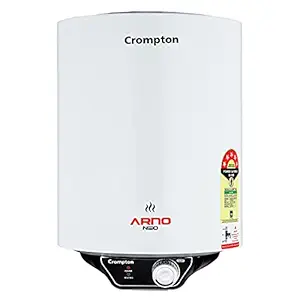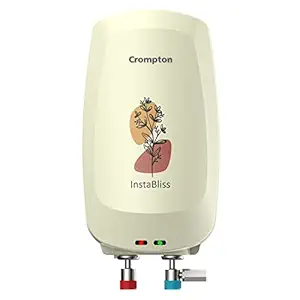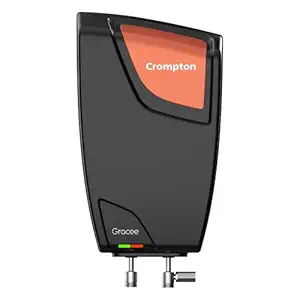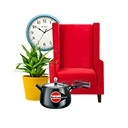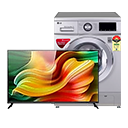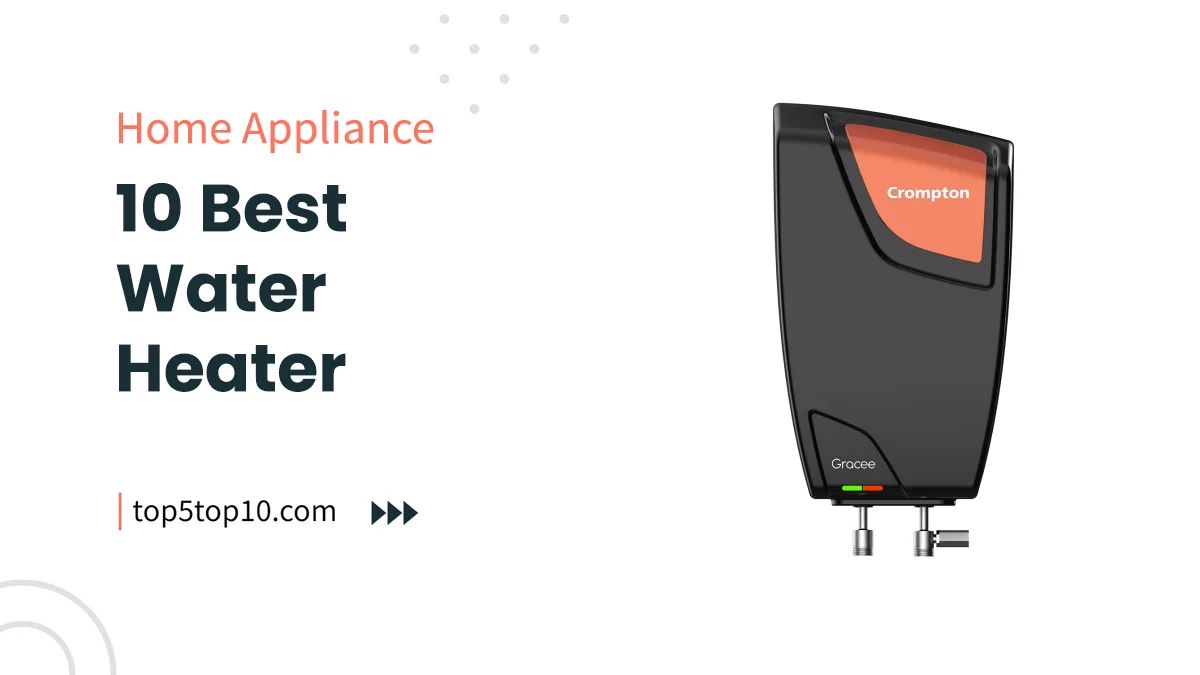
10 Best Water Heater 2023 – Choosing the right type of water heater for your home can be a daunting task.
With so many different types of water heaters available, it can be difficult to figure out which one is best suited for your needs.
To help you make an informed decision, we’ll discuss the different types of water heaters and their benefits, including gas vs electric vs tankless models.
We’ll also provide tips on how to choose the best home water heater for your needs.
Water heaters are an essential part of any home, and they come in a variety of different types.
Electric hot water heaters, natural gas hot water heaters, propane hot water heaters, and solar powered hot water heaters are all options that you can choose from.
Each type has its own advantages and disadvantages that you should consider before making a decision.
In this article, we will discuss the different types of water heaters and what makes them unique so that you can make the best choice for your home.
When it comes to hot water systems, electric and gas are the two main choices. Each has their own advantages and disadvantages, so it is important to understand the pros and cons of each before making a decision.
This article will explore the pros and cons of electric vs gas water heaters, helping you decide which is best for your needs.
We’ll cover topics such as cost, efficiency, maintenance requirements, safety concerns and more.
By the end of this article you’ll have a better understanding of which hot water system is right for you.
Are you in the market for a new water heater? Before you purchase one, there are several factors to consider.
Size is an important factor when it comes to selecting the right water heater for your home.
You will need to measure the space where you plan to install the new hotwater system and make sure that it will fit.
Additionally, you should also consider the location of your new hotwater system. Depending on where it is installed, you may need additional insulation or other components to ensure that it operates efficiently and safely.
Contents
- 10 Best Water Heater Price List 2023
- 10 Best Water Heater in India 2023
- 1. Crompton Arno Neo Water Heater (15L)
- 2. Bajaj New Shakti Neo Water Heater (15L)
- 3. Bajaj Splendora Water Heater (3L)
- 4. AO Smith HSE-VAS-X-015 Water Heater (15L)
- 5. Racold Eterno Pro Water Heater (25L)
- 6. Crompton InstaBliss Water Heater (3L)
- 7. Havells Instanio Water Heater (10L)
- 8. Crompton Gracee Water Heater (5L)
- 9. Havells Instanio Water Heater (3L)
- 10. V-Guard Zio Plus Water Heater (3L)
- (1) Choosing the Right Water Heater for Your Home: A Comprehensive Guide
- (2) Gas vs. Electric Water Heaters: Which One is Right for You?
- (3) Tankless Water Heaters: Pros and Cons
- (4) How to Maintain Your Water Heater: Tips for a Long-Lasting Appliance
- (5) Signs It’s Time to Replace Your Water Heater
- (6) How to Install a Water Heater: A Step-by-Step Guide
- (7) Water Heater Safety Tips: Preventing Accidents and Injuries
- (8) Water Heaters: Pros, Cons, and Installation
- (9) Water Heater Troubleshooting: Common Issues and Solutions
- 10 Best Water Heater Offer List 2023
- Water Heater FAQs
10 Best Water Heater Price List 2023
| S.No. | Water Heater | Price |
|---|---|---|
| 1. | Crompton Arno Neo Water Heater (15L) | ₹6,249 |
| 2. | Bajaj New Shakti Neo Water Heater (15L) | ₹5,299 |
| 3. | Bajaj Splendora Water Heater (3L) | ₹2,499 |
| 4. | AO Smith HSE-VAS-X-015 Water Heater (15L) | ₹6,749 |
| 5. | Racold Eterno Pro Water Heater (25L) | ₹8,999 |
| 6. | Crompton InstaBliss Water Heater (3L) | ₹2,499 |
| 7. | Havells Instanio Water Heater (10L) | ₹7,790 |
| 8. | Crompton Gracee Water Heater (5L) | ₹3,499 |
| 9. | Havells Instanio Water Heater (3L) | ₹3,699 |
| 10. | V-Guard Zio Plus Water Heater (3L) | ₹3,049 |
Recent Posts:
- Polk vs Sony Soundbars: Making the Right Choice
- Sonos vs Polk Soundbars: A Comprehensive Comparison
- Polk vs JBL Soundbars: A Comprehensive Comparison
- Polk vs Bose Soundbars: A Comprehensive Comparison
10 Best Water Heater in India 2023
1. Crompton Arno Neo Water Heater (15L)
5 Star Rated Water Heater Advanced 3 Level Safety GreyBrand: Crompton
Capacity: 15 litres
Colour: Grey
Wattage: 2000 Watts
Item Weight: 7 kg 800 g
Item Dimensions LxWxH: 31.5 x 33 x 46.2 Centimeters
Price: ₹5,750
Rating: 4.1/5
More Info : Crompton official website. Click here!
2. Bajaj New Shakti Neo Water Heater (15L)
Vertical Storage Water Heater 4 Star BEE Rated Titanium Armour Swirl Flow Technology Glasslined Tank White 1 Yr WarrantyBrand: Bajaj
Capacity: 15 litres
Colour: White
Wattage: 2000 Watts
Item Weight: 9700 Grams
Item Dimensions LxWxH: 33.5 x 31.5 x 46.1 Centimeters
Price: ₹5,499
Rating: 4.1/5
3. Bajaj Splendora Water Heater (3L)
3KW IWH Instant Water Heater (Geyser) WhiteBrand: Bajaj
Capacity: 3 litres
Colour: White
Wattage: 3 KW
Item Weight: 2200 Grams
Item Dimensions LxWxH: 23.3 x 20.8 x 38.8 Centimeters
Price: ₹2,599
Rating: 4.1/5
4. AO Smith HSE-VAS-X-015 Water Heater (15L)
Vertical Water Heater (Geyser) White 4 StarBrand: AO Smith
Capacity: 15 litres
Colour: White
Wattage: 2000 Watts
Item Weight: 11.8 Kilograms
Item Dimensions LxWxH: 33.8 x 33.8 x 44 Centimeters
Price: ₹6,999
Rating: 4.2/5
5. Racold Eterno Pro Water Heater (25L)
Vertical 5 Star Storage Water Heater (Geyser) Free Standard Installation Free Installation PipesBrand: Racold
Capacity: 25 litres
Colour: White and Metallic Violet
Wattage: 2000 Watts
Item Weight: 10000 Grams
Item Dimensions LxWxH: 38.6 x 38.5 x 51.7 Centimeters
Price: ₹8,899
Rating: 4.2/5
6. Crompton InstaBliss Water Heater (3L)
Instant Water Heater (Geyser) Advanced 4 Level SafetyBrand: Crompton
Capacity: 3 litres
Colour: Ivory
Wattage: 3000 Watts
Item Weight: 2480 Grams
Item Dimensions LxWxH: 19 x 18.5 x 37.5 Centimeters
Price: ₹2,564.51
Rating: 4.1/5
7. Havells Instanio Water Heater (10L)
Flexi Pipe White BlueBrand: Havells
Capacity: 10 litres
Colour: White Blue
Wattage: 2000 Watts
Item Weight: 8000 Grams
Item Dimensions LxWxH: 31.8 x 47.8 x 30.8 Centimeters
Price: ₹6,990
Rating: 4.4/5
8. Crompton Gracee Water Heater (5L)
Instant Water Heater (Geyser)Brand: Crompton
Capacity: 5 litres
Colour: Black
Wattage: 3000 Watts
Item Weight: 3460 Grams
Item Dimensions LxWxH: 21.5 x 25 x 43.5 Centimeters
Price: ₹3,699
Rating: 4.0/5
9. Havells Instanio Water Heater (3L)
4.5KW Instant Water Heater (Geyser) White BlueBrand: Havells
Capacity: 3 litres
Colour: Blue
Wattage: 4500 Watts
Item Weight: 3000 Grams
Item Dimensions LxWxH: 22.5 x 19 x 37.3 Centimeters
Price: ₹3,645
Rating: 4.3/5
10. V-Guard Zio Plus Water Heater (3L)
Instant Water Heater 3000 W Powerful Heating White Energy Efficiency Advanced Safety Features Stainless-Steel Tank 2 Year WarrantyBrand: V-Guard
Capacity: 3 litres
Colour: White
Wattage: 3 KW
Item Weight: 3 kg
Item Dimensions LxWxH: 17.4 x 18.2 x 30.7 Centimeters
Price: ₹2,949
Rating: 4.2/5
Disclaimer: Prices and ratings mentioned in this article are approximate and subject to change. Be sure to check the latest prices and reviews before making a purchase.
(1) Choosing the Right Water Heater for Your Home: A Comprehensive Guide
When it comes to choosing a water heater for your home, there are several factors to consider, such as the type of fuel you have available, the size of your household, and your budget. Here are some tips to help you choose the right water heater:
- Determine the fuel type: You can choose between electric, gas, or propane water heaters. The fuel type you choose will depend on what is available in your area and what you prefer.
- Consider the size of your household: The size of your household will determine the capacity of your water heater. The more people you have in your home, the larger the tank you will need to ensure everyone has enough hot water.
- Look at the energy efficiency rating: The higher the energy efficiency rating, the more energy-efficient the water heater will be. This means you will save money on your energy bills over time.
- Decide between tank and tankless: Tank water heaters store hot water in a tank, while tankless water heaters heat water on demand. Tankless water heaters are more energy-efficient but have a higher upfront cost.
- Consider the installation cost: The installation cost of a water heater can vary depending on the type of water heater and the complexity of the installation. Make sure to factor in the installation cost when deciding on your budget.
By considering these factors, you can choose the right water heater for your home that will meet your needs and fit your budget.
(2) Gas vs. Electric Water Heaters: Which One is Right for You?
Gas and electric water heaters each have their own advantages and disadvantages, so the best option for you depends on your individual needs and preferences.
Gas water heaters tend to be more energy-efficient and offer lower operating costs, especially if you have access to low-cost natural gas. They also tend to provide faster hot water recovery times, which means you won’t have to wait as long for hot water.
Electric water heaters are generally more affordable upfront, and are a good choice if you don’t have access to natural gas.
They also tend to be easier to install and require less maintenance than gas models.
Ultimately, the best choice for you will depend on your specific situation and preferences, so it’s important to carefully consider your options and consult with a professional if necessary.
(3) Tankless Water Heaters: Pros and Cons
Tankless water heaters, also known as on-demand water heaters, have several pros and cons to consider.
Pros:
- Energy efficiency: Tankless water heaters only heat water as it is needed, which can save energy compared to traditional tank-style heaters that continually heat and reheat water.
- Space-saving: Tankless heaters are often smaller and can be mounted on a wall, freeing up valuable floor space.
- Longevity: Tankless water heaters tend to have a longer lifespan than traditional heaters, up to 20 years.
- Endless hot water: Tankless heaters provide a continuous supply of hot water, so there is no need to wait for a tank to refill.
Cons:
- Higher upfront cost: Tankless water heaters can be more expensive to purchase and install compared to traditional heaters.
- Higher installation costs: Tankless heaters may require modifications to gas lines or electrical circuits, which can increase installation costs.
- Limited flow rate: Tankless heaters can have a limited flow rate, meaning that they may not be able to supply enough hot water for high-demand situations such as multiple showers or appliances running at once.
- Need for maintenance: Tankless heaters require periodic maintenance, including flushing the system to remove mineral buildup.
(4) How to Maintain Your Water Heater: Tips for a Long-Lasting Appliance
Regular maintenance of a water heater is essential for its longevity and efficient performance. Here are some tips to maintain your water heater:
- Drain the tank: Sediments and minerals can build up in the tank, causing corrosion and reducing its efficiency. Draining the tank annually can help remove these deposits.
- Check the Anode Rod: The anode rod in the water heater tank attracts the corrosive elements, which protects the tank from corrosion. Over time, the anode rod will degrade and require replacement.
- Adjust the Temperature: The optimal temperature setting for a water heater is typically between 120°F and 140°F. Adjusting the temperature to the appropriate level can help conserve energy and prevent scalding.
- Insulate the Tank: Insulating the water heater tank can help reduce heat loss and improve its energy efficiency.
- Test the Pressure Relief Valve: The pressure relief valve prevents the tank from over-pressurizing and potentially exploding. Regularly testing this valve can help ensure it is functioning correctly.
- Schedule Professional Maintenance: Hiring a professional plumber to inspect your water heater can help catch potential issues early and extend the life of your appliance.
Remember to consult your water heater manufacturer’s manual for specific instructions and recommendations on maintenance.
(5) Signs It’s Time to Replace Your Water Heater
There are a few signs that it might be time to replace your water heater:
- Age: If your water heater is more than 10 years old, it may be time to consider a replacement.
- Rusty water: If your hot water appears rusty or has a metallic odor, this could indicate that your water heater is rusting on the inside and may need to be replaced.
- Leaks: Any leaks around the water heater, including on the tank or pipes, could indicate that the unit is failing and needs to be replaced.
- Inadequate hot water: If your water heater is not producing enough hot water for your household’s needs, it could be time for an upgrade to a larger unit.
- Strange noises: Unusual sounds coming from the water heater, such as banging or popping, could indicate a buildup of sediment or mineral deposits and may require a replacement.
If you notice any of these signs, it’s best to consult with a professional plumber or water heater technician to assess the situation and determine if a replacement is necessary.
(6) How to Install a Water Heater: A Step-by-Step Guide
Installing a water heater can seem intimidating, but with the right tools and guidance, it can be a straightforward process. Here is a step-by-step guide to installing a water heater:
- Turn off the power supply or gas supply to the existing water heater.
- Turn off the water supply and drain the tank.
- Disconnect the water lines and gas line or power supply from the old water heater.
- Remove the old water heater from its location.
- Install any necessary vent pipes or gas lines if you are installing a gas water heater.
- Position the new water heater in its location, making sure it is level.
- Connect the new water heater’s cold water inlet and hot water outlet to the corresponding pipes.
- Install any necessary water shut-off valves or expansion tanks.
- Reconnect the gas line or power supply and turn it on.
- Fill the tank with water and check for leaks.
- Turn on the power or gas supply and light the pilot light if necessary.
- Adjust the temperature of the water heater to your desired setting.
It’s important to follow the manufacturer’s instructions and any local building codes when installing a water heater.
If you are uncomfortable with any part of the process, it is recommended that you consult a professional plumber or HVAC technician.
(7) Water Heater Safety Tips: Preventing Accidents and Injuries
Here are some water heater safety tips:
- Set the temperature: Set the temperature of the water heater to 120 degrees Fahrenheit to prevent scalding.
- Install a pressure relief valve: Install a pressure relief valve on the water heater to prevent the tank from exploding if pressure builds up.
- Proper ventilation: Make sure your water heater is properly ventilated to prevent carbon monoxide poisoning.
- Keep flammable materials away: Keep flammable materials, such as gasoline or paint thinner, away from the water heater.
- Regular maintenance: Regularly maintain your water heater by flushing the tank and checking the pressure relief valve.
- Professional installation: Have your water heater installed by a professional to ensure it is done safely and according to code.
- Inspect your water heater: Regularly inspect your water heater for leaks, cracks, or other signs of damage.
By following these safety tips, you can help prevent accidents and injuries related to your water heater.
(8) Water Heaters: Pros, Cons, and Installation
Water heaters are an essential appliance in most households, providing hot water for a variety of needs, such as bathing, cleaning, and cooking. Here are some pros, cons, and installation considerations for water heaters:
Pros:
- Provides hot water on demand.
- Can be energy-efficient and cost-effective, depending on the type and model chosen.
- Can improve quality of life and comfort in the home.
Cons:
- Can be expensive to purchase and install.
- May require maintenance and repairs over time.
- Can be a safety hazard if not properly installed or maintained.
Installation considerations:
- Determine the type of water heater needed (electric, gas, tankless, etc.).
- Choose the right size for your household’s hot water needs.
- Properly install and vent the water heater according to local building codes and safety standards.
- Regularly maintain and inspect the water heater to ensure it is functioning properly and safely.
(9) Water Heater Troubleshooting: Common Issues and Solutions
Here are some common issues with water heaters and their solutions:
- No hot water: This is usually caused by a faulty heating element or a malfunctioning thermostat. Check and replace the heating element or thermostat if necessary.
- Leaking water: Leaks can be caused by a variety of issues, such as a loose drain valve or a damaged tank. Shut off the power and water supply to the unit and call a professional plumber to assess and repair the issue.
- Strange noises: Banging, popping, or hissing sounds can be caused by sediment buildup or a faulty heating element. Drain the tank and flush out any sediment, or replace the heating element if necessary.
- Rusty water: Rusty or discolored water can indicate corrosion inside the tank. Drain and flush the tank to remove sediment and replace the anode rod if necessary.
- Pilot light won’t stay lit: This can be caused by a faulty thermocouple or gas valve. Replace the thermocouple or gas valve if necessary.
Remember, if you are uncomfortable with troubleshooting or repairing your water heater, always consult a professional plumber for assistance.
10 Best Water Heater Offer List 2023
| # | Preview | Product | Rating | Price | |
|---|---|---|---|---|---|
| 1 |

|
Crompton Arno Neo 15-L 5 Star Rated Storage Water... | ₹ 10,400 ₹ 5,998 | Buy on Amazon | |
| 2 |
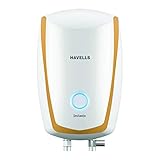
|
Havells Instanio 3-Litre 3KW Instant Water Heater... | ₹ 6,190 ₹ 3,498 | Buy on Amazon | |
| 3 |

|
V-Guard Divino 5 Star Rated 15 Litre Storage Water... | 9,457 Reviews | ₹ 8,500 ₹ 6,199 | Buy on Amazon |
| 4 |

|
Havells Instanio Prime 15 Litre Storage Water Heater... | ₹ 14,570 ₹ 7,598 | Buy on Amazon | |
| 5 |

|
Bajaj Skive 5 Litre Instant Water Heater for home| High... | 25,493 Reviews | ₹ 7,730 ₹ 3,499 | Buy on Amazon |
| 6 |

|
Crompton InstaBliss 3-L Instant Water Heater (Geyser)... | 17,839 Reviews | ₹ 4,400 ₹ 2,698 | Buy on Amazon |
| 7 |

|
Venus MegaPlus 15EV 15-Litre Storage Water Heater... | 624 Reviews | ₹ 9,740 ₹ 6,594 | Buy on Amazon |
| 8 |

|
Racold Pronto Pro 3L 3KW Vertical Instant Water Heater... | 8,854 Reviews | ₹ 4,849 ₹ 2,949 | Buy on Amazon |
| 9 |

|
Bajaj New Shakti Neo 15L Vertical Storage Water Heater|... | ₹ 13,150 ₹ 5,499 | Buy on Amazon |
Water Heater FAQs
What is a water heater?
A water heater is an appliance used for heating water for showering, washing dishes, and other household tasks.
How does a water heater work?
A water heater heats water using an energy source such as electricity, natural gas, or propane.
The water is stored in a tank and then distributed through pipes to various fixtures such as a shower or sink.
What are the different types of water heaters?
There are several types of water heaters including storage tank water heaters, tankless water heaters, heat pump water heaters, and solar water heaters.
What factors should I consider when choosing a water heater?
When choosing a water heater, you should consider factors such as the size of your household, the available energy source, the desired hot water flow rate, and the required size of the water heater.
How do I maintain my water heater?
To maintain your water heater, you should regularly drain the tank to remove any sediment build-up, check the temperature and pressure relief valve, and ensure proper insulation around the tank.
It is also recommended to have a professional inspect and service your water heater annually.
|
Recent Posts
- Polk vs Sony Soundbars: Making the Right Choice
- Sonos vs Polk Soundbars: A Comprehensive Comparison
- Polk vs JBL Soundbars: A Comprehensive Comparison
- Polk vs Bose Soundbars: A Comprehensive Comparison
- JBL vs Bose Soundbars: A Comprehensive Comparison
Related Tags
Hot Water Heater, Tankless Water Heater, Electric Water Heater, Gas Water Heater, Instant Water Heater, On-Demand Water Heater, Point-of-Use Water Heater, Portable Water Heater, High-Efficiency Water Heater, Hybrid Water Heater, Solar Water Heater, Water Heater Installation, Home Appliance, Home Comfort, Energy Efficiency, Heating Appliance, Plumbing Appliance, Water Heating, Bathroom Appliance, Home Improvement.
Last update on 2024-04-28 at 22:49 / Affiliate links / Images from Amazon Product Advertising API


